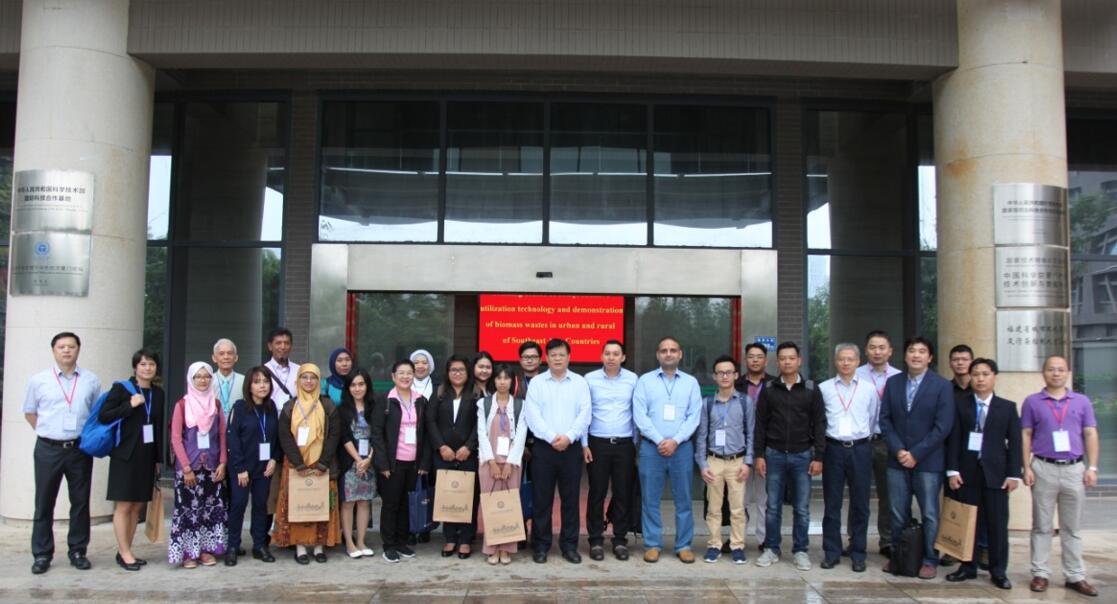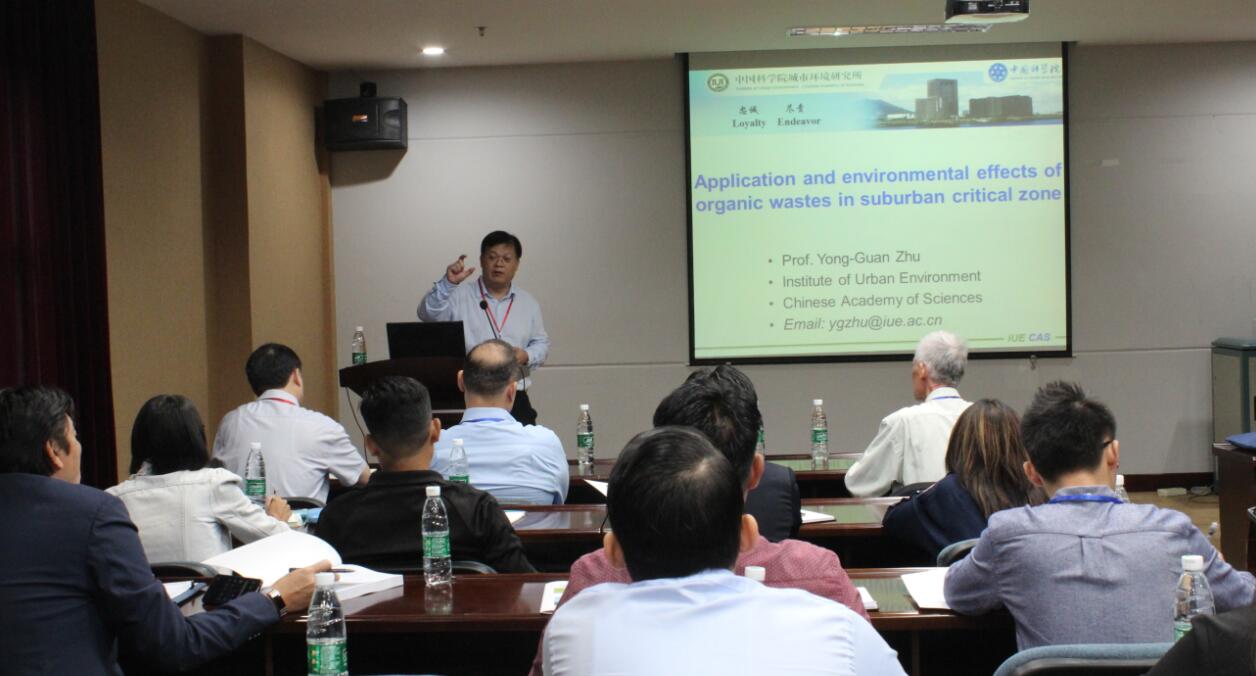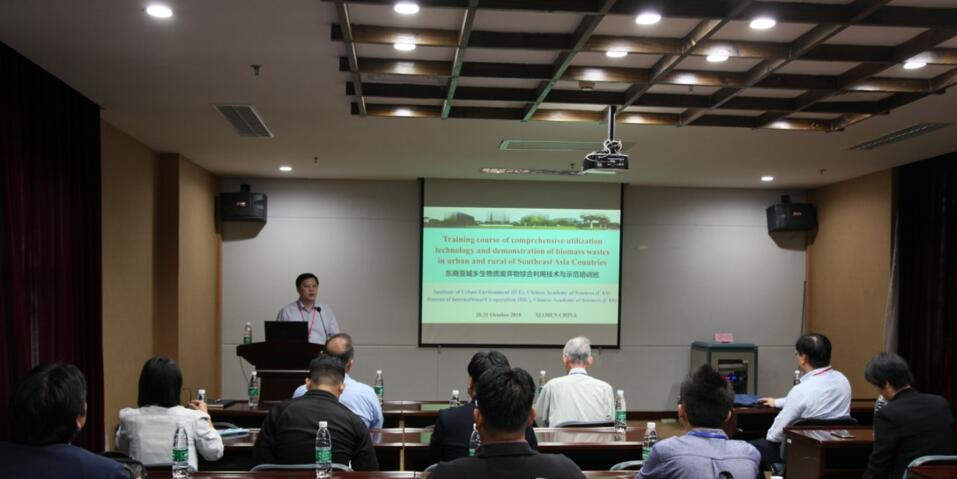From October 20 to 31, “Training course of comprehensive utilization technology and demonstration of biomass wastes in urban and rural of Southeast Asia Countries” was held with success in Institute of Urban Environment (IUE), Chinese Academy of Sciences (CAS). This training course was funded by the Bureau of International Co-operation, CAS to promote the building of scientific and technological capacity, and the cultivation of management talents of engineering technology research and scientific research in developing countries covered by the Belt and Road Initiative. More than 20 participants from government administrations, technical and management personnel of research institutes, and enterprise engineering technicians in Malaysia, Indonesia, Cambodia, Thailand, Myanmar, Philippines and Pakistan participated in the training course. The training course was carried out through several ways, including classroom teaching, field visiting, and discussion.
Prof. Yongguan Zhu, director for science education/internationalization of IUE, CAS, gave a speech in the opening ceremony and expressed a warm welcome to the participants. Professors, including Yongguan Zhu, Jianqiang Su, Yin Wang, Shaohua Chen, Chaoxiang Liu, Tao Lin from IUE, Zhifeng Zheng from Xiamen University, and Associate Professors, including Guangwei Yu and Zhilong Ye from IUE, gave specific lectures to the participants. Afterwards, the participants visited the Xiamen Eastern Solid Waste Treatment Center, including a MSW landfill site, an incineration plant and the ReCulture Renewable Energy Company Ltd., a demonstrational site of garbage classification in Xiamen, the demonstrational project of biochar production from sewage sludge and pig manure and its application demonstration project of Huateng Animal Husbandry Co., Ltd. in Tongxiang City, Zhejiang Province.
The training course was active and the discussion was warm. In conjunction with training and learning practices, the participants actively explored practical problems and solutions in the use of biomass waste in their countries, respectively. The exchanges between the participants in the training class were improved and the friendship was simultaneously established.
The training course further expanded and strengthened the scientific and technological exchanges and cooperation between IUE, CAS and developing countries. Moreover, the international influence of IUE, CAS in science and technology was also increased.


